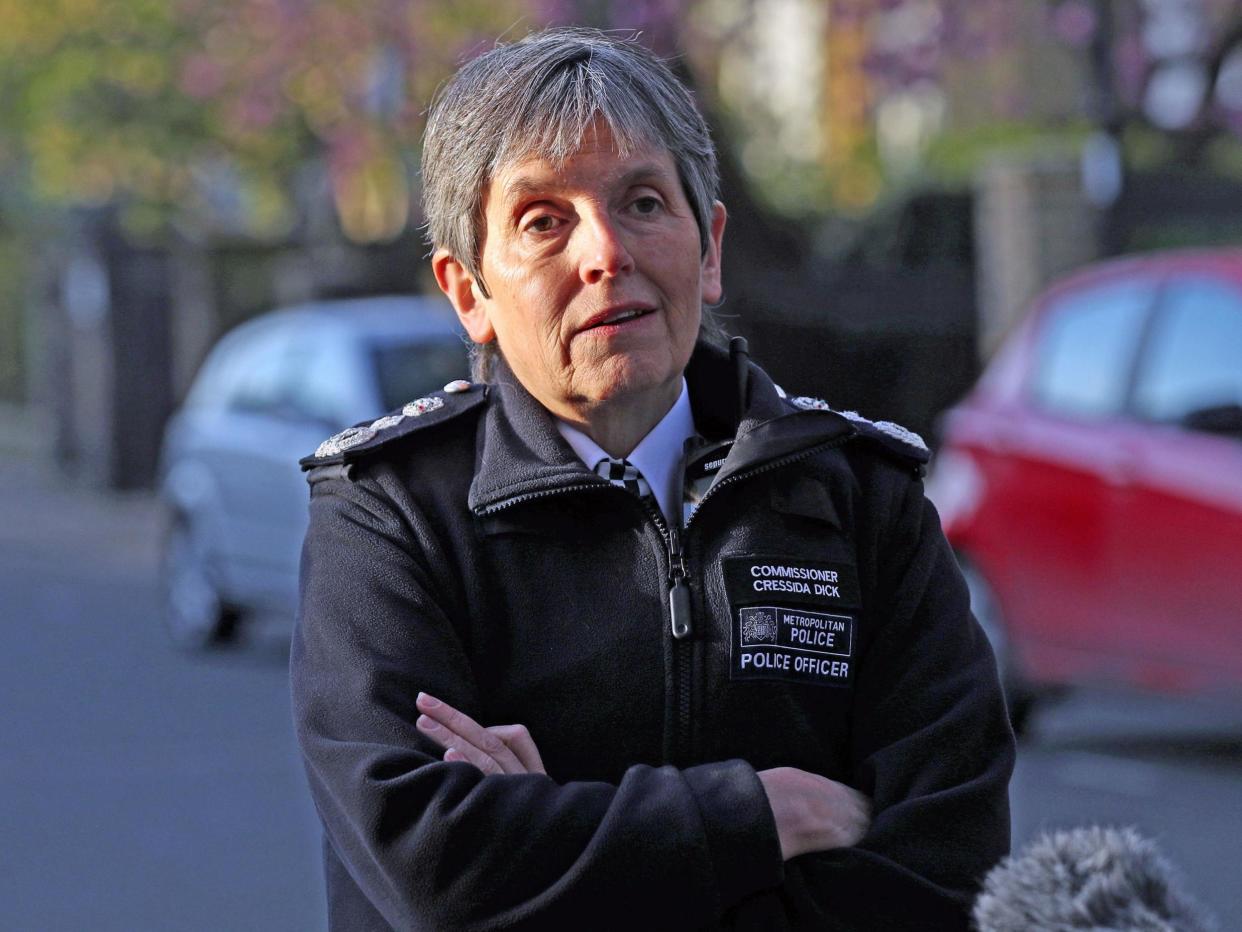Not ‘helpful’ to label Metropolitan Police institutionally racist, commissioner Cressida Dick says

The commissioner of the Metropolitan Police has said it is not "helpful" to talk of the force being institutionally racist.
Cressida Dick, Britain's most senior police officer, insisted she was not "in denial" over police treatment of black people and ethnic minorities but suggested "everybody knows" Scotland Yard has "zero tolerance" of racism within its ranks.
The father of murdered London teenager Stephen Lawrence said in June he believed police remained institutionally racist decades after promised reforms in the wake of the botched investigation into his son's killing.
But speaking to Channel 4 News on Thursday, Dame Cressida suggested the term had a "contested definition".
"I think it means all sorts of things to different people. I don’t think it’s helpful," she added.
The commissioner said: “We have zero tolerance of racist behaviour within the Met. Just last week somebody was sacked for racist conduct. And everybody knows that is the case.
“We embraced the challenge, if you like, that was set for us 20 years ago by Sir William Macpherson in the Stephen Lawrence Inquiry in which he came up with a definition of institutional racism.
“I was the person charged with implementing the recommendations and I’m very proud of what we did. I think we’ve come a very, very, very long way.”
The police chief said she regularly looked for signs of bias in the way the force operated, and said she was “horrified” to discover that black, Asian and minority ethnic staff in the Met were twice as likely to find themselves in a misconduct process.
Meanwhile, Dame Cressida said she also cared “deeply” about the investigation into Lawrence’s death.
The 18-year-old was murdered by racists in Eltham, south east London in April 1993.
Two of the 18-year-old’s killers, Gary Dobson and David Norris, were jailed for murder in 2012, but three remain at large.
She said the investigation would be reviewed every two years to see if there was any further evidence to pursue.
“I don’t want to hold out false hopes, but it seems to me extremely likely if you look forward, that at some stage we will not be in an inactive phase (of the investigation),” Dame Cressida said.
On the issue of police stop and search, she said young black men were “hugely disproportionately stabbed and killed” and “hugely tangled up” in the criminal justice system.
She said police carry out stop and searches in high violence areas to ensure knives were taken off the street, with 4,500 weapons removed last year.
During the wide-ranging interview, Dame Cressida was also asked about the investigation surrounding American paedophile Jeffrey Epstein and the Duke of York’s alleged involvement in the case.
“The locus and focus of any investigation in relation to Jeffrey Epstein for example is clearly in America," she said.
“If the Americans need our assistance at any stage, then we will give them that.”
Epstein killed himself last August before facing trial on sex trafficking and conspiracy charges.
One of Epstein’s victims, Virginia Giuffre, who claims she was trafficked by the financier, alleges Andrew had sex with her on three separate occasions, including when she was 17, still a minor under US law.
The duke categorically denies he had any form of sexual contact or relationship with Ms Giuffre.
Additional reporting by Press Association
Read more
Senior officer attacks ‘trial by social media’ after black MP stopped
Stephen Lawrence’s killers remain at large as investigation closed
‘Knee-on-neck’ Met Police officer subject to criminal investigation
Boris Johnson denies Met Police are ‘institutionally racist’

 Yahoo News
Yahoo News 
